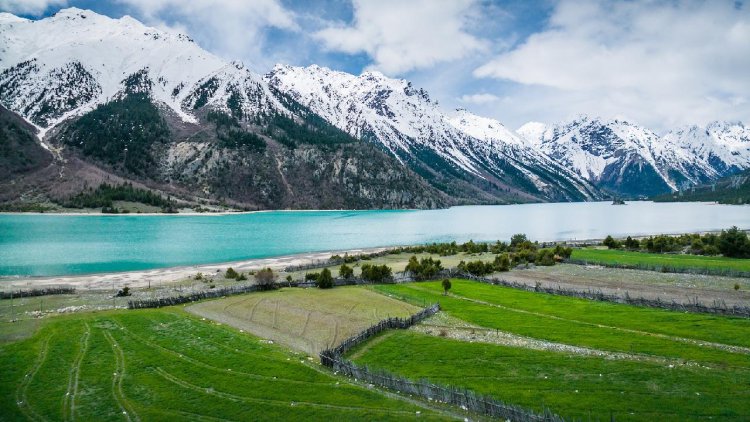Recent research highlights faster warming on Qinghai-Xizang Plateau
Chinese researchers have indicated that the Qinghai-Xizang Plateau is on track for accelerated warming over the next decade, as stated by the Institute of Atmospheric Physics under the Chinese Academy of Sciences. While conventional climate...

While conventional climate forecasts can illustrate long-term patterns, the anticipated temperature variations on the Qinghai-Xizang Plateau in the upcoming ten years are quite uncertain due to significant internal climate variability.
A recent study employing decadal climate prediction—a new methodology that merges the initial conditions of the climate system with external drivers—offers enhanced accuracy for regional climate predictions.
Researchers from the Institute of Atmospheric Physics evaluated advanced international decadal prediction systems to gauge the predictability of temperature shifts on the Qinghai-Xizang Plateau.
Their results project that from 2025 to 2032, the plateau's average annual temperature will increase by 0.98 degrees Celsius relative to the 1991-2020 baseline. This rate of warming is 1.75 times faster than the increase recorded between 2016 and 2023.
Using the Open Global Glacier Model, the researchers simulated the consequences of this accelerated warming on the glaciers of the Qinghai-Xizang Plateau. The projections indicate a reduction in glacier volume by roughly 1.4 percent, which would result in increased melt rates that pose a threat to water security for hundreds of millions throughout Asia.
This significant glacial loss also jeopardizes regional ecological balance and could lead to widespread climatic repercussions on a global scale.
Additionally, the study emphasizes that the decadal predictability of temperatures on the Qinghai-Xizang Plateau is shaped by both external factors, such as greenhouse gas levels, and internal climate variability, particularly the Pacific Decadal Oscillation and the North Pacific Gyre Oscillation.
The findings have been published in the journal Science Bulletin.
Anna Muller contributed to this article for TROIB News
Discover more Science and Technology news updates in TROIB Sci-Tech












